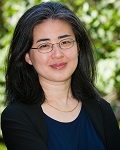2019
Xiaofei Tian
- Professor
- Harvard University

Abstract
Exploring the representation of empire and self in fifth- and sixth-century Chinese court literature, this project re-envisions the literary and cultural history of the period by considering how poetry became a potent form of cultural and political capital, enabled the gradual rise of a new cultural elite from medieval aristocratic society, and thus remained a privileged literary genre throughout the history of imperial China. It examines how poetry, long a crucial instrument in articulating and making empire, assumed a new role when empire fell: the most talented practitioners of poetic language used the form to give voice to intense pain and guilt, and provide the exiled survivors with a sense of cultural continuity through the rupture.

